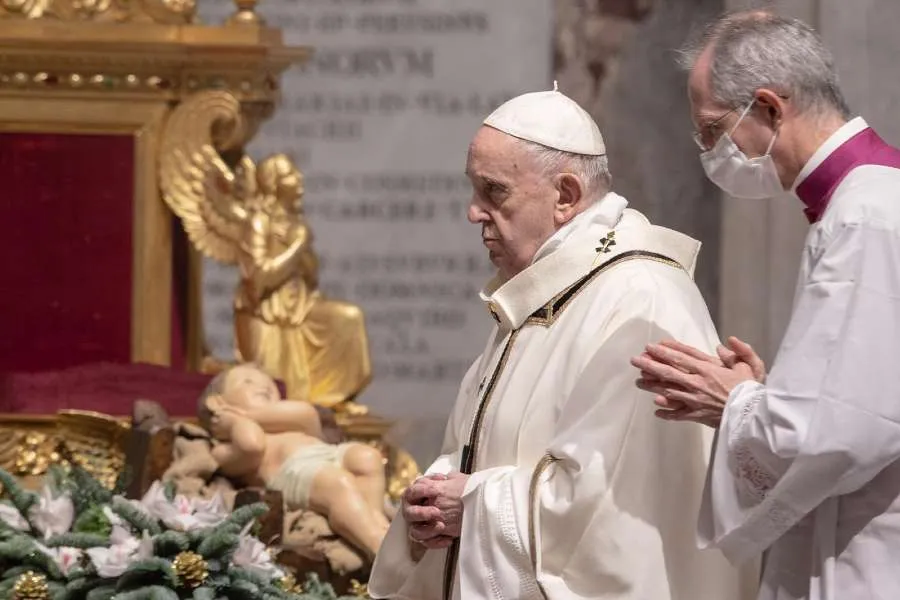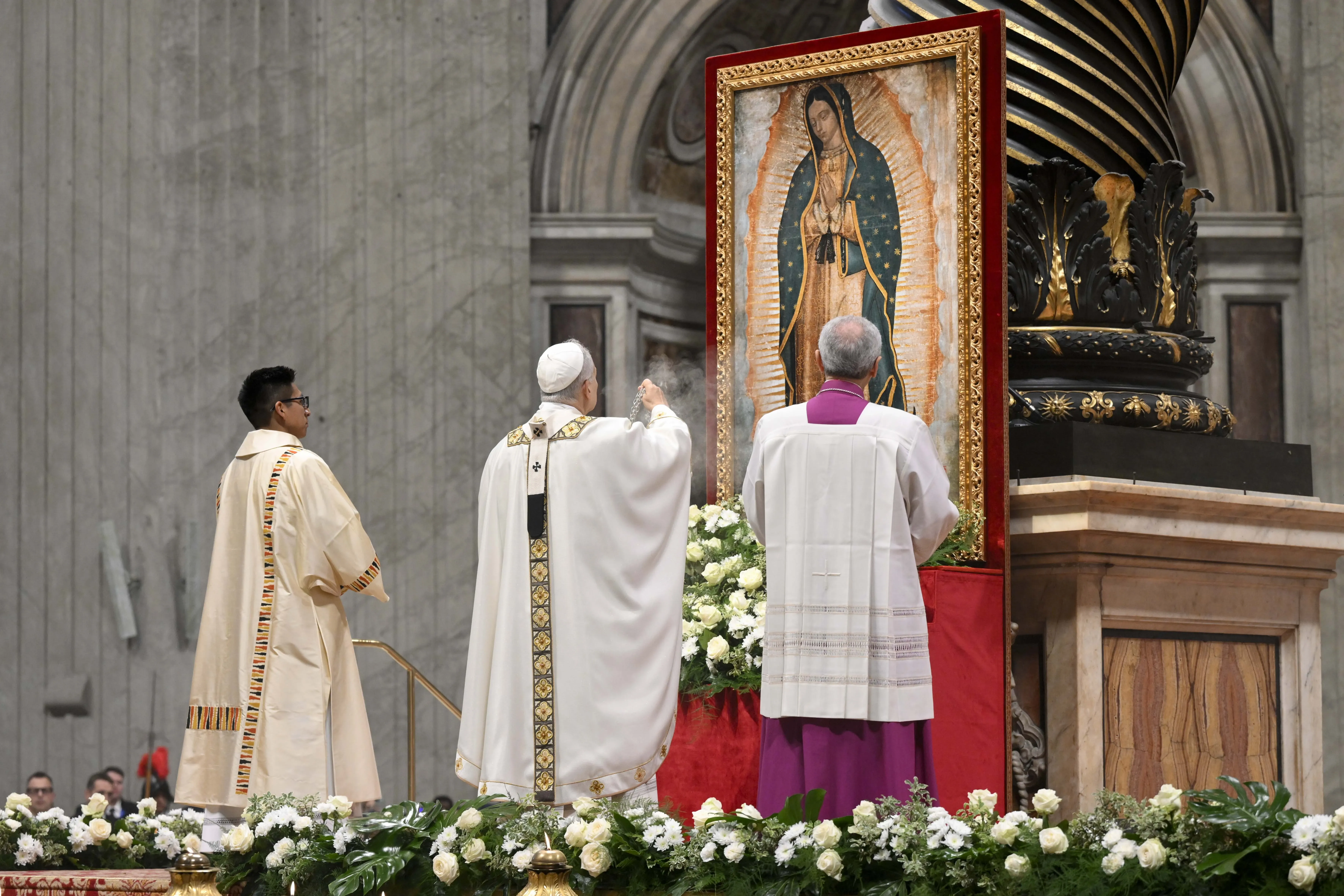“In the lowly manger of a darkened stable, the Son of God was truly present," he said. "Why was he born at night without decent accommodation, in poverty and rejection, when he deserved to be born as the greatest of kings in the finest of palaces?"
“Why? To make us understand the immensity of his love for our human condition: even touching the depths of our poverty with his concrete love. The Son of God was born an outcast, in order to tell us that every outcast is a child of God,” Pope Francis said.
“He came into the world as each child comes into the world, weak and vulnerable, so that we can learn to accept our weaknesses with tender love.”
The pope said that God “placed our salvation in a manger” and is therefore unafraid of poverty, adding, “God loves to work wonders through our poverty.”
“Dear sister, dear brother, never be discouraged. Are you tempted to feel you were a mistake? God tells you, ‘No, you are my child.’ Do you have a feeling of failure or inadequacy, the fear that you will never emerge from the dark tunnel of trial? God says to you, ‘Have courage, I am with you,’” he said.
“The angel proclaims to the shepherds: ‘This will be a sign for you: a baby lying in a manger.’ That sign, the Child in the manger, is also a sign for us, to guide us through life,” the pope said.
About 100 people were present inside the basilica for the Mass. After the proclamation of the birth of Christ in Latin, Pope Francis spent a few moments venerating the Christ child at the start of the Mass.
“God came among us in poverty and need, to tell us that in serving the poor, we will show our love for him,” he said.
Pope Francis then quoted the poet Emily Dickinson, who wrote: “God’s residence is next to mine, his furniture is love.”
At the end of his homily, the pope prayed: “Jesus, you are the Child who makes me a child. You love me as I am, I know, not as I imagine myself to be. In embracing you, the Child of the manger, I once more embrace my life. In welcoming You, the Bread of life, I too desire to give my life."








